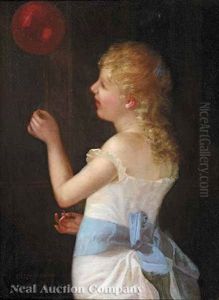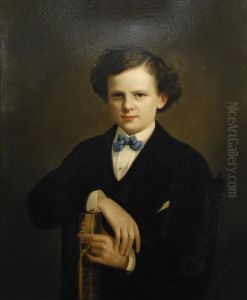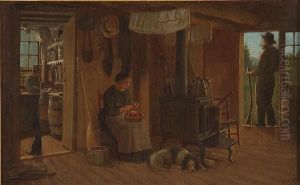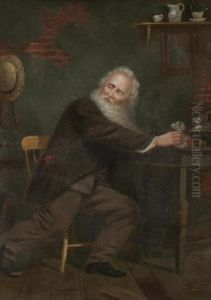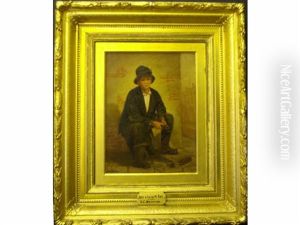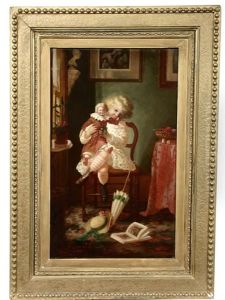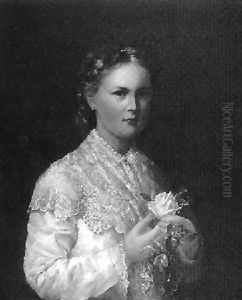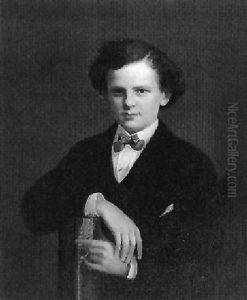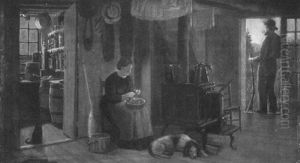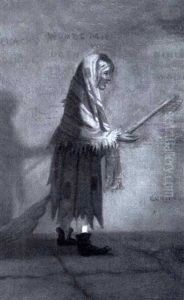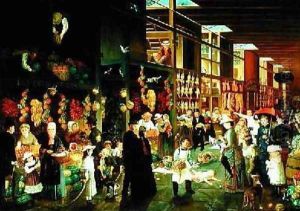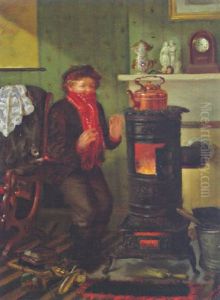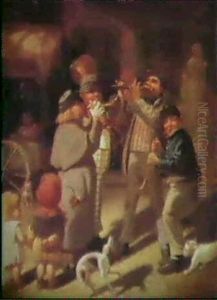Charles Cole Markham Paintings
Charles Cole Markham, who is commonly known as Edwin Markham, was a distinguished American poet, not an artist in the visual sense. Born on April 23, 1852, in Oregon City, Oregon, he was raised in a rural setting in Lagoon Valley, near Vacaville, California, after his parents, Samuel Barham and Elizabeth Winchell, divorced when he was a young child. Markham's early experiences in the rugged landscapes of the West would later influence his poetic work.
He attended California College in Vacaville, and later the University of California at Berkeley, though he did not graduate from Berkeley. Instead, he focused on educating himself, reading widely and deeply in the classics and the works of contemporary writers. Markham's first notable poem, 'The Man with the Hoe,' was inspired by Jean-François Millet's painting 'L'homme à la houe,' which depicts a weary, toil-worn laborer. This poem, published in 1899, became an instant classic, resonating with the social reform movements of the time by addressing issues of labor and the plight of the common man.
Markham's career as an educator and school administrator in California was nearly as prominent as his literary career. He served as a teacher and later as a school principal, influencing the development of education in the state. His poetry, however, is what gave him lasting fame. He became a well-known figure of the literary establishment, corresponding with other literary figures of the day and continuing to write poetry that engaged with social and philosophical issues.
Markham was an advocate for social justice, and his work often reflected his concerns about inequality and his belief in human solidarity. His other notable works include 'Lincoln, the Man of the People,' written in 1901, and 'Children in Bondage,' which was a plea for child labor reform. Over his lifetime, Markham produced several volumes of poetry and became a popular figure on the lecture circuit.
Edwin Markham was a prominent figure in the poetry circles of the early 20th century, and he was active in various social causes until his death on March 7, 1940, in Staten Island, New York. His legacy includes his contributions to American literature, education, and the social reform movements of his time. Markham's work remains a testament to his belief in the power of poetry to raise awareness and to effect change.
